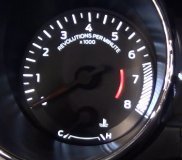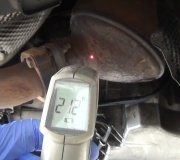Wednesday, March 25th, 2009 AT 1:00 AM
My car has had break pads put on, and roto and a master cly, and new tires and new shocks complete. My problems has not been fixed yet? When I drive, it happens off and on, when this happens I have to pull over, ok, I will be driving and the car will not go over 30 miles per hours it loses power, ok another thing that happens at the same time, is, the break comes up, and cannot push it down, like its stuck or something. I spend alot already, and the problem is still there, what can you do to help me with what the heck is it. I push on the gas and it just will not go, and the breaks come up on its own, and will not go back down? I have to stop turn off car and try it again, sometimes works sometimes it don't. Please help me so I can tell them to fix it right? Sincerely Ms Wilson.


